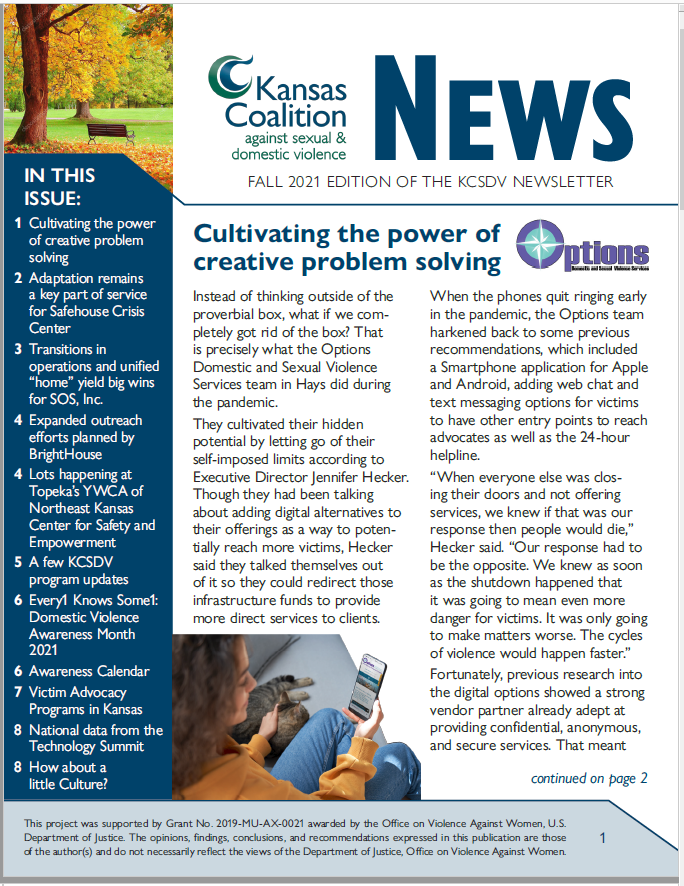KCSDV Fall 2021 Newsletter
- October 7, 2021
- Posted by: Jeanny Sharp
- Categories: 2020, 2021, All News & Blog Posts, Newsletters
In this newsletter:
- Cultivating the power of creative problem solving
- Just one question…with Jennifer Hecker
- Expanded outreach efforts planned by BrightHouse
- Adaptation remains a key part of service for Safehouse Crisis Center
- Transitions in operations and unified “home” yield big wins for SOS, Inc.
- Lots happening at Topeka’s YWCA of Northeast Kansas Center for Safety and Empowerment
- A few KCSDV program updates:
- Every1KnowsSome1 Domestic Violence Awareness Month
- Resources
Cultivating the power of creative problem solving

Instead of thinking outside of the proverbial box, what if we completely got rid of the box? That is precisely what the Options Domestic and Sexual Violence Services team in Hays did during the pandemic.
They cultivated their hidden potential by letting go of their self-imposed limits according to Executive Director Jennifer Hecker. Though they had been talking about adding digital alternatives to their offerings as a way to potentially reach more victims, Hecker said they talked themselves out of it so they could redirect those infrastructure funds to provide more direct services to clients.
When the phones quit ringing early in the pandemic, the Options team harkened back to some previous recommendations, which included a Smartphone application for Apple and Android, adding web chat and text messaging options for victims to have other entry points to reach advocates as well as the 24-hour helpline.
“When everyone else was closing their doors and not offering services, we knew if that was our response then people would die,” Hecker said. “Our response had to be the opposite. We knew as soon as the shutdown happened that it was going to mean even more danger for victims. It was only going to make matters worse. The cycles of violence would happen faster.”
Fortunately, previous research into the digital options showed a strong vendor partner already adept at providing confidential, anonymous, and secure services. That meant the project could be live within 6 weeks. They spent the most time determining a name, logo and keyword for the new services resulting in “text HOPE to 847411”.
Increased promotion and community outreach on the new digital offerings has yielded an ever-increasing number of victims using the services – reaching a high of 26 in June.
“The new technology offerings serve as an entry point, generally beginning with a single question about legal services or some other element,” Hecker said. “Our advocates build trust and keep moving forward to break down barriers leading to a longer relationship with in-person services.”

Just 1 Question with Jennifer Hecker, Executive Director
Options Domestic & Sexual Violence Services
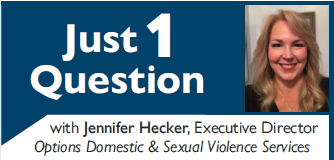
As a leader in this industry, what is the most rewarding moment for you in your career?
Seeing the relief on a victim’s face when they realize there really is hope that they really can get help and that they can, for the first time in a very long time, breathe a sigh of relief. One survivor said, for the first time in 10 years, that she could sleep without having to keep one eye open awaiting her abuser’s return. It is great to be part of an agency that can bring back peace and relief when they [victims/survivors] realize that we believe them and that we can help them.
Expanded outreach efforts planned by BrightHouse


While many programs are trying to figure out how to provide services while keeping their distance from each other, BrightHouse in Hutchinson plans to reach out. That outreach includes the addition of a part-time Advocacy Outreach Coordinator to schedule and plan for staff to attend special events — regardless of COVID.
“We need more ways to do outreach,” said BrightHouse Executive Director Sue Wray. “We want to be ready to meet those needs, making sure we have a robust outreach program when people are ready to get back out there.”
Those efforts include having tents at special events with onsite services at the State Fair, the Hutchinson Community College, and others. Advocacy at these sites offer unique opportunities to co-locate with other partners, such as EMS, and to handout contact information to expand awareness and usage of services.

Adaptation remains a key part of service for Safehouse Crisis Center
The rise and fall of COVID-19 rates in Southeastern Kansas have kept the Safehouse Crisis Center in a constant mode of adapting. Those adaptations evolved from in-person victim support groups to online support groups and now the agency has settled into a hybrid model of both in-person and online support groups to satisfy participants as well as staff, who may or may not be homebound for COVID.
“Flexibility has been key,” said Safehouse Crisis Center Executive Director Brooke Powell. “In rural areas, victims often face challenges, such as transportation and childcare concerns.”
Much like using tele-health, participants have become accustomed to technology offerings.
As masks started being used in the office and at the shelter, beds were spread out to allow social distancing. Fewer beds also meant hotel rooms had to be used in our 7-county coverage area. It has been beneficial to have partnerships so those kinds of quick changes can occur.
Powell credits their staff with their teamwork and willingness to do whatever is needed to pick up the slack from others who are out ill as well as for educating victims about the availability of vaccines. At one meeting, victims were so focused on dealing with their own trauma that they weren’t aware that their area of the state was a hotspot for COVID. They didn’t know they had access to a vaccine. After learning more, some meeting participants decided to get the vaccine.
“We’re grateful for small wins,” Powell said.
Transitions in operations and unified "home" yield big wins for SOS, Inc.
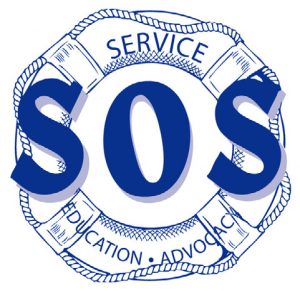
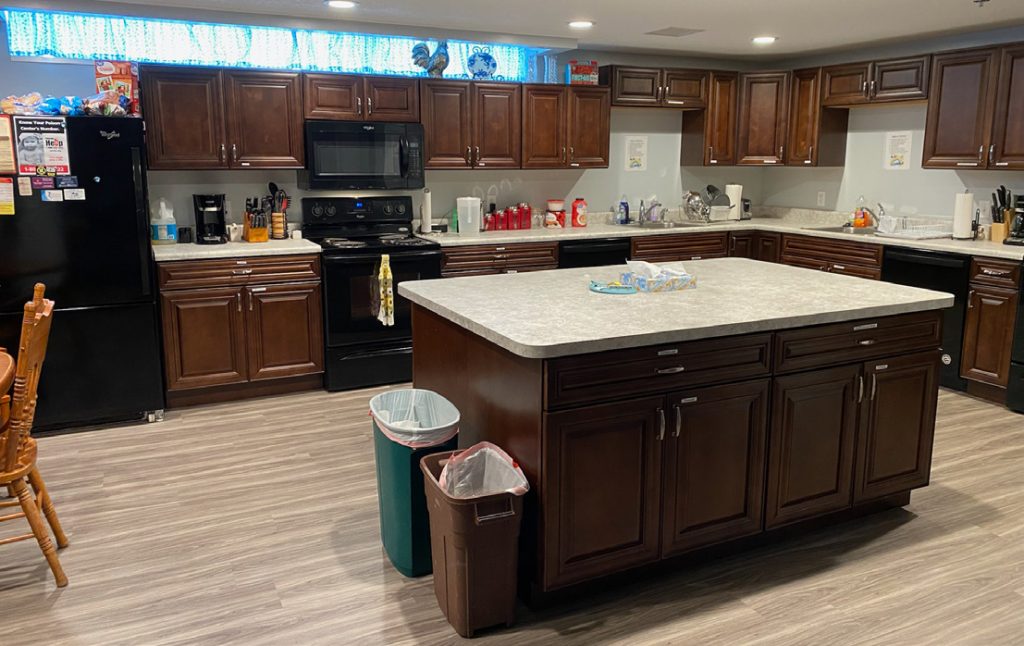
Since the COVID-19 pandemic, we have had to make some adjustments to the way we serve our clients and how we engage the community.
We were very fortunate that we never had to completely stop our services. Our advocates began to offer virtual meetings, engaged in more phone calls, or found safe ways to privately meet with victims. Some staff were able to continue their roles by working remotely and others carefully followed social distancing guidelines to ensure the health and safety of our staff. Our shelter also still was used (not to capacity and with careful consideration to CDC/local guidelines).
During the pandemic, I really focused on completing and launching our new website to ensure we had the most up-to-date information available, and we made our website much easier to navigate to find information. We also relied heavily on social media to share information with the public. The pandemic did force us to cancel some of our critical fundraising events due to the concern of public health and safety. This was very concerning, especially in a time when grant funding also decreased; however, we were able to adapt some of our smaller fundraising campaigns, such as SOS Strong, and it brought in a record-breaking amount – doubling what we bring in most years! It was incredible to see the generosity and support from our community members in a time when there was so much uncertainty and hardship.
This past April we transitioned our traditional Take Back the Night event (a march around campus and public speaker) into a virtual event, and we were overwhelmed by the positive response and engagement it received! We had such a great response that we are considering doing a public march in the future but keeping the virtual event.
Another big highlight for this year has been the completion of our SOS Community Advocacy and Service Complex. SOS staff were spread across four locations in Emporia for many years and are now settled into our new “home” [in one location]. All four of our programs (Crisis Services, CASA of the Flint Hills, the Child Visitation & Exchange Center, and the Child Advocacy Center), our Emergency Family Shelter, and our SOS administrative team are unite dunder one roof.
We have already seen the positive impact that a central location has created for clients and staff. Because of this fully renovated and integrated 25,000-sq. foot facility, clients and staff are benefiting from improved efficiency of victim services provided, the convenience of one location, enhanced security, and proximity to community resources. Our brand-new Family Shelter, offers six bedrooms of varying sizes, four bathrooms (three of which have a shower and/or tub), living and wellness areas, laundry amenities, and a spacious kitchen with dual cooking stations. Most importantly, residents possess immediate access to all SOS programs that are now on-site. Safety and security have been a priority in every decision we make. We have security cameras and monitors, alarms, keycard access doors, and on-site security officers. A privacy fence has been erected to ensure shelter families can safely relax outside without fear of public exposure or intrusions from estranged abusers and an enclosed garage allows safe transportation to and from the facility.
Additionally, all three floors are fully accessible and compliant with the Americans with Disabilities Act (including a newly installed elevator and lift). This momentous achievement not only represents decades of hard work and sacrifice but also embodies a dream come true for a human services organization like ours. Our organization began as a solitary office run by a single volunteer in 1976 and has now expanded to serve six Kansas counties with a trained staff of 49 employees and over 100 volunteers.
Lots happening at Topeka's YWCA of Northeast Kansas Center for Safety and Empowerment

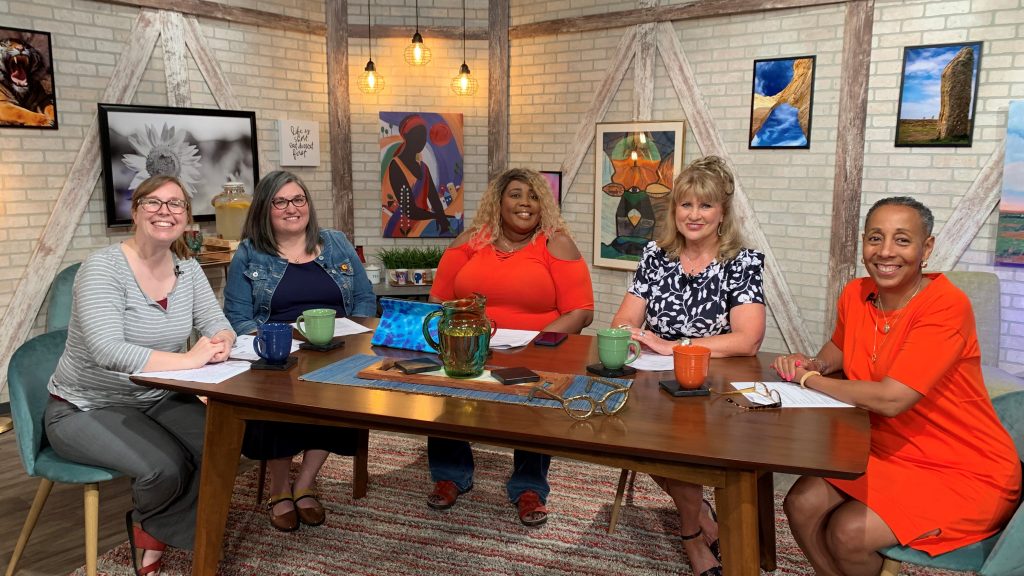
Director Becca Spielman sends out a weekly update to her team. Here are some high points:
Two YWCA staffers were featured on Public Television’s KTWU Inspire Show. The show, which is a new series for women, will include inspirational stories featuring women in communities, politics, families, history, career, and life. The program aired in early September. View this episode of Inspire.
CSE Shelter Staff participated in the first Shelter Training Boot Camp.
During the month of July 2021, the Day Center served 20 clients!
Who doesn’t love some positive feedback? Here are a few comments from people served by the YWCA NEK Center for Safety and Empowerment:
From a focus group member – “The help was always there. You guys just always helped. It was up to me to make it. I had to be more for me, really do it and not just think about it. Like to get out of that life, it took me over three years. But you can, you know. You have to give yourself a chance. That is what you guys have always tried to do, help us as women who are emotional and vulnerable and get into that trap. To realize it can get really scary out there and bad, but you can succeed and get out of it. You can. You have to give yourself a chance, and that is what you guys have helped us to see. It has allowed me to just breathe and have a chance. Ya’ know, for once in my life.”
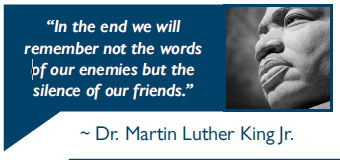
A few KCSDV program updates:
The Improving Criminal Justice Response (ICJR) project is building a toolkit for using a Lethality Assessment Protocol and managing a High-Risk Response Team. In July, we welcomed Alyson Frydman and in late Sept., Angie Swart, to our project staff team!
The Legal Assistance for Victims program helped 17 survivors secure legal services by providing them free legal representation or warm referrals to private attorneys. The LAV staff held virtual Regional Roundtables where we met with more than 10 coalition members across the state and their regional Kansas Legal Services (KLS) legal staff and the Executive Director to collaborate on best ways to help survivors. The LAV program also provided 2 legal trainings offering 7.5 free CLEs in areas such as LGBTQI+, Trauma-Informed Lawyering Skills, Confidentiality, Expert Witnesses and View from the Bench, to over 50 attorneys and allies.
During a year of new challenges and emerging barriers for domestic violence survivors, the Protection Order Project has prioritized accessibility, education, and system continuity. This year, the Protection Order Project has assisted member programs with the new online Kansas Protection Order Portal. Additionally, we continue to provide trauma-informed, and protection order-related training to various state agencies and programs, including trainings for judges, court clerks and attorneys. We have identified gaps within the Protection Order system through surveys to law enforcement, judges, advocates, attorneys, and school administrators.
The goal of the Housing Advocacy Program is to work statewide with KCSDV coalition members to reduce the impact of co-occurring domestic and sexual violence and homelessness and to improve housing and economic stability for survivors. The Housing Advocacy Program continues to strengthen collaborative relationships in order to expand the state’s capacity to provide trauma-informed and survivor-centered housing services.
KCSDV has a Website Project underway. It is updating and simplifying its website. Please keep an eye out for a website survey soliciting your feedback.
Legal & Policy–The legislature passed several bills this year that will be beneficial to Kansas survivors.
Senate Bill 60 removes the spousal exception from the crime of sexual battery. Now spouses can be charged with sexual battery, just like every other perpetrator. SB60 prohibits courts from requiring psychiatric or psychological examinations of alleged victims of any crime. The bill was introduced last year and only focused on victims of sexual violence but was reintroduced this year to include all victims of crime. Lastly, SB60 creates the felony crime of sexual extortion.
This new crime of sexual extortion is threatening to injure a person or their property to induce them into engaging in sexual contact or provide them with images of a sexual nature.
HB 2008 addressed the epidemic of missing and murdered indigenous women and girls in this country. The bill requires the attorney general to coordinate training for law enforcement agencies on this important issue.
HB 2071 increased the penalties for stalking a minor when the victim is under the age of 14.
HB 2114 expanded the definition of financial abuse and exploitation and expanded mandatory reporting requirements to include firefighters and all school personnel.
HB 2079 moved administration of the address confidentiality program (Safe at Home) from the Secretary of State’s office to the Attorney General’s office.
Every1KnowsSome1 Domestic Violence Awareness Month

Domestic violence thrives in silence. To be able to support and help victims and survivors, and to prevent domestic violence in the future, we all need to normalize talking openly about it.
Having an informed conversation about domestic violence requires understanding what it is— that it’s much more than physical abuse—and why ‘just leaving’ isn’t so simple for survivors.
Understanding risk and protective factors can play an important part in preventing domestic violence. Click here to learn more.
We appreciate each of you choosing to be a voice against violence. Breaking the silence against domestic violence truly matters. Many of you may be familiar with the Yes, This Room SAKI initiative. It is still here and it remains important because domestic violence and sexual assault happen in Kansas to people you know. To people you love. To people in this room. Help us change the conversation and hold abusers accountable.
Each year, one in four women are victims of severe intimate partner violence. In Kansas, 25% of all 130 homicides were a result of domestic violence in 2019. We, who work against this violence every day, strive to do better for victims and survivors. But some don’t make it to safety and that makes all of us sick in our hearts and souls.
If one of you reading this needs help, call the Kansas Crisis Line 888-363-2287 for the services nearest to you or refer to our Kansas Coalition members’ map showing their service area. The National Domestic Violence Hotline is 1.800.799.SAFE 24/7. Domestic violence is often thought about in terms of physical violence, but controlling behavior and other abusive tactics often begin long before any physical violence occurs. As a society we all have a role in changing the narrative about what domestic violence is, to whom it happens, and how we can support those who are experiencing it, and ultimately prevent it entirely.
This October in recognition of Domestic Violence Awareness Month, KCSDV is partnering with the National Network to End Domestic Violence (NNEDV) and other state coalitions across the nation to start a coordinated national conversation about domestic violence and how we can all contribute to flipping the script on this overshadowed, but fundamental topic.
How can you help? Join us! Show your support for victims and survivors by following our social media accounts and sharing the content we’ve
already prepared with your own networks throughout the month of October with the hashtag #Every1KnowsSome1. Participate in our week of action, October 18–24, 2021 and stay engaged throughout the year to show your support.

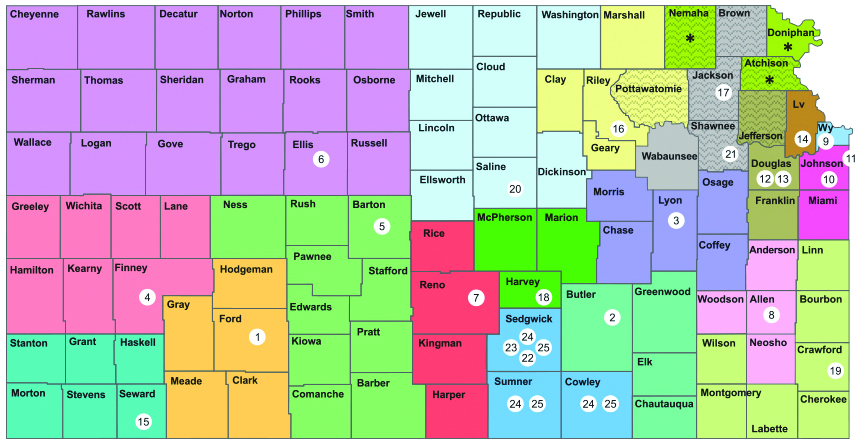
Resources
This project was supported by Grant No. 2019-MU-AX-0021 awarded by the Office on Violence Against Women, U.S. Department of Justice. The opinions, findings, conclusions, and recommendations expressed in this publication are those of the author(s) and do not necessarily reflect the views of the Department of Justice, Office on Violence Against Women.
KANSAS CRISIS HOTLINE: 888-END-ABUSE | 888-363-2287
Last Updated on Oct 10, 2021


